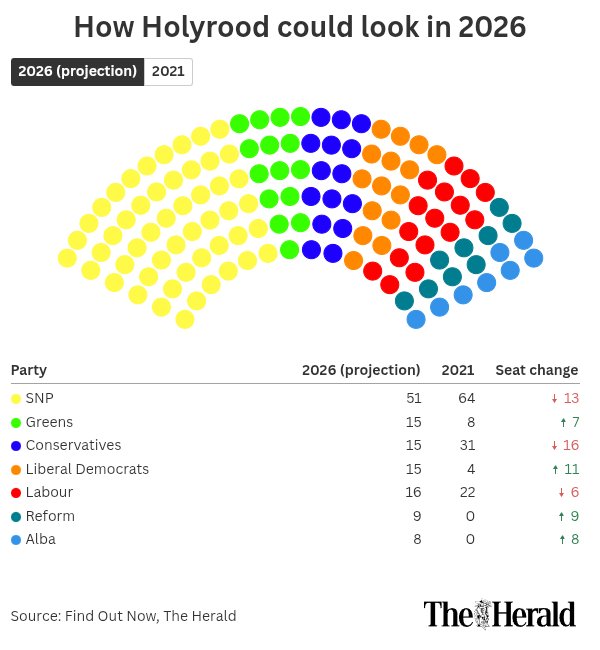Back at the Beating Heart

From a tweet by Keir Starmer, Jul 7, 2024: “Scotland is back at the beating heart of my government.”
How’s that working out for Sir Keir and Anas Sarwar?
As I mentioned here, Sarwar’s car-crash of an interview with Colin Mackay over Grangemouth exposed a politician caught in the headlights of his own precarious position, tied to a government over which he has no control, and in which he has no influence. For the avoidance of any doubt, Scotland is not at the beating heart of anything, we are marginalised, ignored and sidelined.
Despite the devolution being the forced-hand of Donald Dewar, Labour frequently lays claim to its creation. But, as Jackie Kemp lays out here (Ten ways the UK Government is undermining devolution): “Since the Brexit vote, Westminster has been determined to take back control – of Scotland. It wants to go back to an old version of the power relationship that predates the era of both countries joining the EU. It is tearing up the agreed legal framework that was established on the basis of the 1997 referendum where devolution was supported by 75% of voters.
Without consultation or consent, the UK Government is making highly political and ideological changes. Instead of standing by the convention that it should not interfere in devolved areas, the Westminster government sees itself as the owner of Scotland’s sovereignty – and it regards the Scottish Parliament as having none. Therefore it can do whatever it pleases to Scotland.”
This puts Scottish Labour in an impossible position ahead of Holyrood 2026. Instead of delivering on promises, over: payments to the WASPI women; protecting jobs at Grangemouth; the Edinburgh super-computer investment, the idea that GB Energy would be based in Scotland and have a big impact on reducing energy bills; or scrapping the two-child benefit cap … we have capitulation and evasion.
Sarwar’s last few weeks is akin to the Liberal Democrats notorious U-turn on tuition fees in 2010, which scarred them electorally for years.

But what do Labour’s scribes and media supporters think? In a remarkable piece the New Statesman’s Scotland Editor, Chris Deerin writes (‘Why Scottish Labour isn’t panicking‘):
“It’s worth saying that although the leadership accepts the current polling data is grim – and more than one senior figure has used the word “shitshow” to me in reference to Westminster – they remain optimistic about 2026. They point to a YouGov poll published this week that found a majority of Scots were unhappy with both the Labour and SNP governments. Most of those voters who backed Labour in July but have now peeled away can be won back, they believe – these are “undecideds” who are not moving to the SNP or Reform. “We captured aspirational middle Scotland in July 2024, with a message of economic competence and economic growth, and we can do it again,” a source told me. There’s also confidence that Sarwar’s energy and undoubted charisma will best the more restrained Swinney in the election campaign and in debates.
“There has been much criticism of the lack of detailed policy from a party that wants to be seen as a government-in-waiting. Labour is now moving to fill in some of the blanks. Sarwar this week launched a consultation on the party’s technology strategy, taking in computer science education, digital exclusion, infusing tech into the public sector, and driving investment. At the party’s Scottish conference in Glasgow later this month there will be announcements on the NHS and broader health policy.”
“Sarwar is taking much of his inspiration from Andy Burnham’s impressive record as mayor of Greater Manchester – he recently hired Ross McCrae, a former Burnham adviser – though as he points out, Holyrood has significantly more levers than England’s directly-elected mayors. He talks of Holyrood having been too much of a “social policy parliament” in its first 25 years and not enough of an “economic parliament”. If he wins the election, he plans to install an economics directorate at the heart of the first minister’s office. Scotland’s enterprise agencies – Scottish Enterprise, Highlands and Islands Enterprise, and South of Scotland Enterprise, will be reorganised into a single “super agency” that will answer to and be steered by the directorate. There will be a “concierge service” that provides a simplified, gold standard service for potential investors, an approach that has worked well in Ireland and Manchester.”
Much of Deerin’s analysis is about what Sarwar will do once he’s installed in office as the new First Minister of Scotland.
You wonder where such pundits get their optimism despite the polling showing the Labour Party tanking in Scotland, and, in the words of the Polling Guru John Curtice “Far from easing Anas Sarwar’s path to Bute House, Labour’s victory in July has seemingly made his task harder.”

As the Irish Times puts it (‘SNP stages unlikely revival as Scottish Labour support collapses‘): “Curtice this week crunched the numbers and predicted that if a Holyrood election matched the polls the SNP would win 51 seats, down from the 64 (one short of a majority) it won in 2021 but still enough to be the largest party and lead a government.”
“Labour, meanwhile, could return as few as 16 MSPs, six lower than a dire result in 2021 that was a low watermark in the devolution era. The Tories, Greens and Liberal Democrats would each return about 15 MSPs.”
Chris Deerin’s hubris and rose-tinted spectacles are not isolated. I met with a very senior Unionist journalist this week who described the above polling as a “Unionist majority”. And, in one world it is. If Labour were to join a coalition with the Scottish Conservatives, the Liberal Democrats and Reform UK, then this is viable with a tally of 55. But if Scottish Labour still have the scars to show for their 2014 Better Together project, it’s hard to see them surviving a coalition with Nigel Farage’s party, never mind Russell Findlay’s. But times are hard, and who knows what Labour will do after some of the noises coming from them this week.
For the SNP – a coalition with the Scottish Green Party is also problematic given the shambolic end of the Bute House Agreement – as is working with Alba, although the latter appears to be descending into civil war, and the polling which showed them picking up eight seats has been widely debunked (‘Find Out Found Out?‘)
The problem with having such a monoculture of political media is that you are closed beyond your tight circle and your silo. Such is the uniformity of the Scottish commentariat that the warning signs of your party’s imminent demise are ignored in favour of glowing scenarios of future governments and imagining all of the policies that Anas Sarwar will be implementing as First Minister.

“Scotland’s enterprise agencies – Scottish Enterprise, Highlands and Islands Enterprise, and South of Scotland Enterprise, will be reorganised into a single “super agency” that will answer to and be steered by the directorate.”
This is quite concerning. HIE’s forerunner, the Highlands and Islands Development Board was established precisely because centralised approaches served the area so poorly. Economic policy for the Highlands has its share of problems, but I don’t think more centralisation is a good answer to them.
Centralisation of the development agency function would be equally bad for the South of Scotland. We should be building on the institutional frameworks of the Highlands and Islands and the South of Scotland and strengthening regional agency generally.
No one will forget Winter Fuel Payment, Grangemouth, GB/UK energy and the WASPI women. WFP and WASPI in particular will be remembered. I don’t think there is a way back for them. The reason they aren’t panicking is that they’ve become used to being second. Also, I don’t think anyone really believes Sarwar has any charisma.
Is that the same Chris Deerin who praised Kevin Pringle for the acumen he displayed in bringing the Bute House Agreement crashing down about Humza Yousaf’s ears?
The very same!
The idea of Reform UK having even a single seat in the Edinburgh Parliament is utterly sickening. Far right English Nationalists, or any style of far right nationalists, should never attract enough support from people in Scotland to win any seats. The idea of these idiots holding any kind of public office fills me with a mixture of shame, anger and amazement. I suppose there is always a section of the population who are stupid, right wing bigots and will vote for the lowest populists, even against their own economic interests. Of course, having the Orange Blob and Elon the Oligarch in the White House doesn’t help, but Starmer in Westminster shows exactly how far right the Labour Party itself has now become.